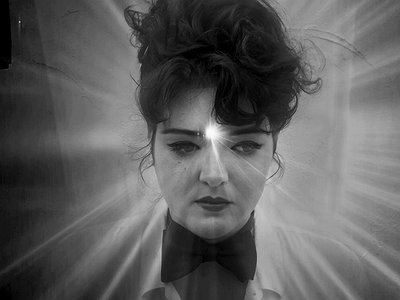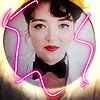Part 1
Name: Nicole Turley
Nationality: American
Occupation: Musician / composer / producer
Bands/ Projects: Swahili Blonde / Amoureux with Jennifer P Fraser
Labels: Neurotic Yell Records
Artist Recommendations: Dorothea Tanning / Madeleine L'engle's ‘Wrinkle In Time’ series
When did you start writing and producing music? And what or who were your early passions and influences?
I started writing and playing music in 2003, when I joined my first band Seventh Sea. It was very punk. Most of us ladies couldn’t afford instruments, so we made the best out of hand me down stuff our musician friends didn’t want anymore.
I began writing and producing my own music in 2009 with Swahili Blonde, mainly because John Frusciante provided me with my first studio to write and record in. And his studio manager, Anthony Zamora, taught me the basic ins and outs of Protools, recording and mixing. I am very grateful to both them.
I’ve always liked all kinds of music. When I was in elementary school I’d only listen to cassette tapes of 50’s songs or Broadway musicals. In junior high I started listening to more mainstream alternative radio like KROQ. And in high school I’d make a lot of mix tapes of The Cramps, Soft Cell, The Clash, B-52s, very early No Doubt, The Specials, Ska compilations, Kronos Quartet, Hungarian/Romanian folk music, new wave 80s…
For most artists, originality is first preceded by a phase of learning and, often, emulating others. What was this like for you? How would you describe your own development as an artist and the transition towards your own voice?
I’ve always been one of those people where no matter how hard I tried to be like someone else (and at different points in my life I wanted nothing more) - for better or worse, I could only be me. So say for example, one day I decided to write a song I wanted to sound like Talking Heads, I could try, but that reference would never come across in an obvious way. I just don’t know how to do that.
My development as an artist I think comes from making a concerted effort to stay open. It’s never about me having control of what’s produced. But more being a clear channel, or conduit, for things to come through. Every album is a discovery and new experience.
What were your main compositional- and production-challenges in the beginning and how have they changed over time?
I still get thrown off by how mixes and masters can sound so different on various systems. Like a song will sound one way in my studio, then sound totally different in the car, and then sound different from that in the living room, and on earbuds, and on the laptop, etc. People listen on so many different systems now. It’s a lot of checking to see how things sound, and can be a confusing and frustrating listen. But it has gotten better and more consistent over the years. I think that’s just due to time put in and fine tuning my ears. And not expecting things to sound perfect.
Tell us about your studio, please. What were criteria when setting it up and how does this environment influence the creative process? How important, relatively speaking, are factors like mood, ergonomics, haptics and technology for you?
As my living situation has changed, so has my home studio. This has been a pretty interesting year for me as far as studios go. Because I was travelling while it was recorded, my new LP And Only The Melody Was Real was primarily recorded on a bare bones portable studio in Savannah GA and Manhattan NY. Then mixed once in my home studio (when I still had it) in Los Angeles, and then remixed a 2nd time and mastered at my friend’s studio in Brooklyn, NY.
Recording and finishing this record has pretty much been the opposite of what I’ve been used to over the past seven years. No comfort zone. But that’s ok. Change is good. I turn into such an isolated hermit when I’m working in my studio, it was a great experience working in Brooklyn - walking to the studio every day, having set hours to work, and then leaving and living life.
The aesthetics have also changed too. In my old studio I’d always have posters and artwork all over the walls - Alexander Calder, Max Ernst, Hundertwasser. Paintings I loved from various thrift stores. And with this new LP I found my environment, the city I was in, became the artwork. Savannah is truly one of the most beautiful cities I have ever seen. I could live there 100 years and would never get tired of it. And Manhattan has been a home away from home for me for almost 20 years now. It never ceases to inspire me in a new way.
What are currently some of the most important tools and instruments you're using?
Funnily enough I’d say, right now, the midi keyboard. With my upcoming LP, because I was travelling and very limited on instruments I could use, I did a lot of midi orchestral parts and arrangements with this incredible program called East West. That was so fun. And I got a lot more into synth sounds with the FM8 plugin. And love this drum machine plugin called Boom. With past albums I’ve done all instrumentation manually, which I like too. But with this new LP I tried something different and got creative within the midi realm. I was listening to a lot of 80s synth pop when working on that record, so that was the sound I was inspired by.
Many contemporary production tools already take over significant parts of what would formerly have constituted compositional work. In which way do certain production tools suggest certain approaches, in which way do they limit and/or expand your own creativity? Are there any promising solutions or set-ups capable of triggering new ideas inside of you as a composer?
I really haven’t found anything limiting yet with music or composing. Different approaches spark different ideas. Most of the limitations seem to come from within, so I try to stay out of my own way. You know, telling yourself “I can’t do this or that… I can’t work this way… I can’t write a song like this…” none of it’s true. You can work any way you want. That’s what makes the creative process fun and exciting. Write a song on the drums first, or start with a violin riff and build out, or sing one line of a song, keep adding to it, and see where it goes. There are endless possibilities; endless ways to work. Stay open, try new things, and make sure you’re having fun.
Could you describe your creative process on the basis of a piece or album that's particularly dear to you, please? Where do ideas come from, what do you start with and how do you go about shaping these ideas?
My EP Deities In Decline and the upcoming LP are definitely the most personal albums I’ve done yet. The previous albums I mostly approached like writing short stories to music - very visual and imaginative. But these new records are about experiences I’ve had, either personally or witnessing something a loved one is going through.
When writing songs, I always do the music first and save vocals for last. Music has always come so much easier to me than vocal parts. Which is kind of funny because I love singing. I sing and hum to myself all the time. Up until the past couple years I wrote all songs on bass first, then would add from there. But with these two new records I’ve been writing all songs on drums first, then adding something melodic like a synth or strings and going from there. I have no clue where ideas come from, but don’t necessarily think it’s our business to know.






